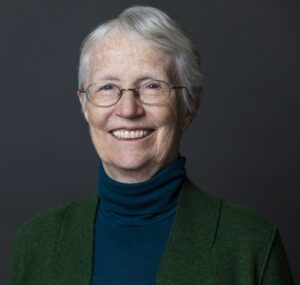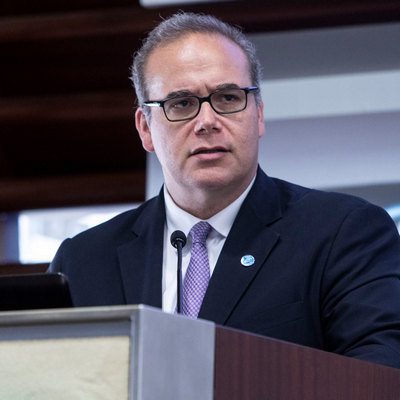 Climate change has significant implications on food systems and the communities who depend on them—affecting agricultural productivity, food supply chains, hunger and malnutrition, and economic livelihoods. At the same time, food systems emit nearly one third of global greenhouse gases, contributing to ongoing climate change effects that worsen these issues. Building food systems that are climate-safe and climate-resilient is key to ensuring people have lifelong access to quality food and safe living environments.
Climate change has significant implications on food systems and the communities who depend on them—affecting agricultural productivity, food supply chains, hunger and malnutrition, and economic livelihoods. At the same time, food systems emit nearly one third of global greenhouse gases, contributing to ongoing climate change effects that worsen these issues. Building food systems that are climate-safe and climate-resilient is key to ensuring people have lifelong access to quality food and safe living environments.The Global FoodBanking Network: Can you start by telling us a little bit about what AgMIP is and how it guides decision making at national levels?
Cynthia Rosenzweig: We are a global network of over a thousand researchers who work on improving the understanding of how climate change will affect agriculture. We have members in and have worked in many countries. We take climate change projections, and we use models of crops and livestock and local food systems to then make projections of how climate change will affect food production regions in countries all over the world.
And we do this always in conjunction with decision makers and stakeholders. So it’s not just modelers sitting by the computers. It’s always integrated with a stakeholder process in which we interact with, for example, national decision makers who are creating climate change adaptation plans for their countries and who might be participating in international climate change negotiations.
So we’re helping stakeholders. What information do they need about their agricultural regions to know about climate change and make decisions—for example, national climate adaptation plans.
The way we do this is we have a program in AgMIP called the A Teams, and that stands for adaptation teams—researchers in the countries who interact with the stakeholders. It’s not a helicopter operation, so we all work together. But with creating the team and the capacity in the country to know what’s happening with climate change, to make the projections, to use all the models and the technical skills and the remote sensing so that each country has the capacity to develop their own resilience to climate change. We also work with social scientists who have studied stakeholder engagement, and they guide the adaptation teams.
Here’s another thing about AgMIP: We work at all scales. It’s global, national, and then within countries—regions—because that’s where the climate change is really affecting everything. But at the same time, you need to have a national view, because that’s where a lot of the programmatic decisions are made. And you have to have the global perspective on, for example, things like prices. And because we have these perspectives and we’re working with many different countries, we’re able to take transboundary effects into account as well.
How does the cost-of-living crisis complicate the work of building food systems that are resilient to climate change?
Oh tremendously. You see, we now have the triple threat of climate change, COVID—which we’re still experiencing in many parts of the world—and conflict. And we are now developing tools within AgMIP that are taking these multiple stresses into account. We have colleagues who are looking at the trade implications that are playing out with the conflict in Ukraine. And the interaction with climate change there is droughts, the potential for more droughts, more floods when the droughts end because of heavy downpours, which are already happening and are predicted to get even heavier. So not only is the conflict disrupting the food supplies, but if that is then combined with extreme climate events affecting the harvests, then that’s the double whammy right there.
You’ve said we cannot solve climate change unless we address the issues of greenhouse gas emissions from the food system. And we cannot provide food security for everyone unless we work really hard to develop resilient food systems. Why is that? How are our climate change and food systems tied together?
Climate change and food systems are a two-way street. One of the ways of the two-way street is that the food system creates about one-third of human-caused greenhouse gas emissions. Food systems are huge. So you see, even if we do everything we can with the energy system, we’re not going to get all the way there without taking the food system into account.
The other way down the two-way street is that the climate is already changing. Increases in extreme events are already increasing in intensity and frequency and duration. So at the same time, we have the climate affecting food security, and it will continue to do so. That’s another reason why it’s so important to limit the amount of global warming, because as those levels from pre-industrial levels go up, more and more impacts on food will occur. That’s why we have to work on both sides of that street.
Much of GFN’s work focuses on reducing food loss and waste to improve environmental resilience. Have you done work in that area?
Yes. As you all know, food loss and waste are a big cause of greenhouse gas emissions from the food system—and it’s so great that the Network is addressing this.If we reduce food loss and waste, we reduce food system emissions—that’s one of the linkages to climate change. But when you link it to food security, in which you are taking food that would otherwise be lost or wasted, and then get it to people who really need it, that needs to be going on.
We can’t reduce all food loss waste. But we have to ensure that food gets to the people who really need it. Climate change puts a downward pressure on food, basically. Having organizations that are really attuned to making sure that food gets distributed properly is absolutely essential. What we have to do is develop and evolve food systems that provide healthy food for people and are sustainable for our planet. We have to be working on both at the same time.
Despite working extensively on climate change, which is obviously a topic of serious concern, it seems like you still remain optimistic. Why is that?
Well, first of all, it’s my personality—you can tell, and you’ve only known me for 10 or 15 minutes. That’s part of who I am. But beyond that—I’ve been able to speak and interact with so many different groups around the world.
My optimism is grounded in my experience with so many groups who are working on this, responding to climate change and working on developing and evolving the food system transitions that are absolutely critical for the future of the planet. There’s just this incredible energy around the work, and that’s why I’m optimistic, even though climate change is the most significant planetary issue of our time.

